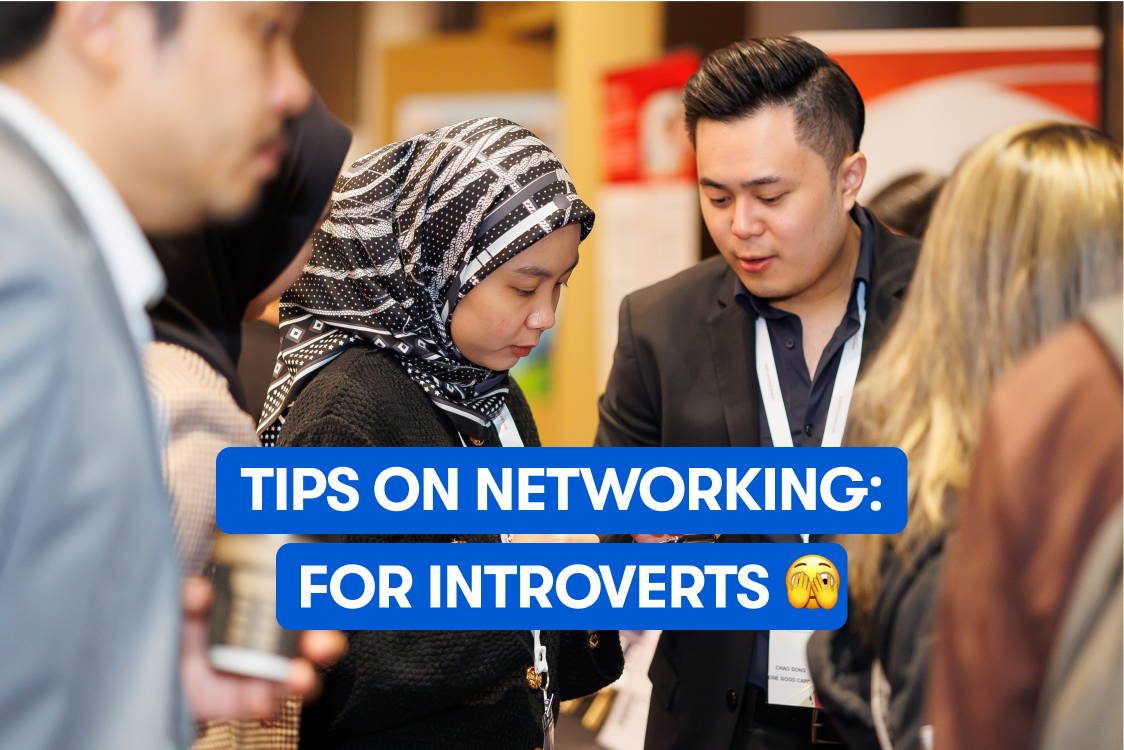
Mastering Networking: Overcoming Networking Nerves
|
|
Time to read: 5 min
Networking nerves are real, and they’re something we all face at some point. But here's the good news: you can overcome them by gradually exposing yourself to networking situations, which helps in overcoming the fear of networking. By understanding the root causes of these nerves and applying practical strategies, anyone can become a confident networker.
Table of content
Understanding Networking Nerves
What Are Networking Nerves?
Networking nerves are that fluttering in your stomach, the sweaty palms, and the anxiety that creeps up whenever you think about walking into a room full of strangers.
Why Do We Get Nervous?
Let’s break it down.
Fear of rejection tops the list – no one likes to feel unwanted or dismissed.
Then there’s self-doubt, that pesky voice in your head questioning your worth.
Social awkwardness rounds it off; not everyone is naturally outgoing, and that’s okay. Understanding these causes helps in tackling them head-on.
Here are 6 main strategies for overcoming networking nerves
1. Preparation is key
The more prepared you are, the more confident and effective you'll be in networking situations. Good preparation gives you a strong base, turning anxiety into confidence and making the whole networking experience better and more enjoyable.
So what can you do?
Set Clear Goals
Networking without a plan can feel like wandering around aimlessly. Set clear, doable goals, like meeting three new people or finding out more about a specific company. Having these goals gives you direction and keeps you focused and motivated during the event. Plus, goals help you measure your success and keep you engaged in meaningful ways.
Do Your Homework
Research Research Research.
Get to know the event you're attending, who else will be there, and what topics or industries will be covered. This kind of preparation gives you a sense of control and makes you feel more confident.
Craft an Introduction
"So, what do you do?"
Prepare a short, sweet intro about yourself. Highlight what you're good at and what you do, making sure you can explain it clearly and confidently. This preparation keeps you from being caught off guard when someone asks, “So, what do you do?”.
2. Building Confidence
When you feel confident, you're more likely to approach new people, engage in conversations, and make meaningful connections. Confidence also helps you navigate networking events with ease, making the experience more enjoyable and rewarding.
Master Your Body Language

Feeling confident in networking situations starts with mastering your body language. Stand tall, make eye contact, and smile to convey assurance and approachability. Your posture and expressions speak volumes before you even say a word.
Be a Great Listener
Engaging in conversations becomes a breeze when you practice active listening. Show genuine interest in what others are saying by nodding, maintaining eye contact, and asking follow-up questions. This approach not only reduces pressure but also makes you memorable.
Start with Easy Conversations
Kick things off with light, easy conversations. Compliment someone on their presentation or ask about their work. These little interactions will help you feel more at ease and make it smoother to dive into deeper conversations.
3. Utilizing Digital Tools to Overcome Networking Nerves
Connecting with attendees on platforms like LinkedIn before events can break the ice and create a sense of familiarity, making face-to-face interactions less daunting.
Additionally, having a digital business card like One Good Card helps you maintain a strong online presence and reassures new contacts, as they can see your professional brand and accomplishments, boosting your confidence in networking situations.

Transitioning from online to offline interactions also becomes smoother, as you've already established a connection, making the in-person meeting feel more natural.
Overcoming Initial Hurdles
Break the Ice
Approaching a group can be intimidating, but icebreakers can make it easier. You could mention something about the event, the venue, or even a speaker’s presentation to find common ground.
Sharing a funny or relevant story can also lighten the mood and make the interaction more enjoyable. Just keep it natural and not too forced.
Bring a Friend

Yup, your wingperson.
Consider bringing a colleague or friend to networking events. Having a familiar face can provide support and boost confidence, making it easier to approach new people.
Your friend can also help introduce you to others, easing you into conversations and helping you feel more comfortable in the networking environment.
NetworkWise - Ways a wingman can up your networking game
Handle Rejection Gracefully
Not every conversation will go as planned, and that's okay.
If someone seems uninterested or you feel like the conversation isn't flowing, politely excuse yourself and move on. Rejection is a normal part of networking, and each experience is a learning opportunity.
Learning to handle rejection gracefully is a valuable skill in itself. It builds resilience, teaches you to bounce back from setbacks, and helps you stay positive and motivated. By handling rejection well, you show professionalism and emotional maturity, qualities that can leave a lasting impression and open doors to future opportunities.
5. Creating Lasting Impressions
Creating lasting impressions in networking is all about quality over quantity. Instead of trying to connect with as many people as possible, focus on building meaningful relationships.
Invest time in getting to know others genuinely and establishing strong connections that will last beyond the event. One Good Card can help you with this by easily saving a contact into your phone with just a tap, ensuring you never lose touch with someone you've met.
Following up is where the real magic happens. After the event, reach out to new contacts via email or LinkedIn. Thank them for the conversation and suggest staying in touch. This simple step can turn a brief encounter into a lasting connection.
Networking is a give-and-take game.
Remember, it's not just about what you can get; it's also about what you can give. Share cool resources, hook them up with folks in your network, or drop some knowledge bombs. Being generous like this makes you someone people want to remember and keep in their circle.
6. Learning from Every Experience
After each networking event, it's good to take a moment to think about how it went. Reflect on what went well and what you could do better next time.
This helps you grow and refine your networking skills. It's also helpful to seek feedback from people you trust, like mentors or peers.
Their perspectives can give you valuable insights and help you improve your networking abilities. Remember, networking is a skill that gets better with practice. Keep learning, adapting, and refining your approach, and you'll become more comfortable and effective over time.
You have to start somewhere!
Diving into the world of networking might feel like a bit of a ride, but it's worth it. We all start from scratch, but with each event, you'll see yourself getting more confident and skilled at making those valuable connections. Treat networking like a skill you're constantly sharpening, and you'll reap the rewards big time in the long run.






